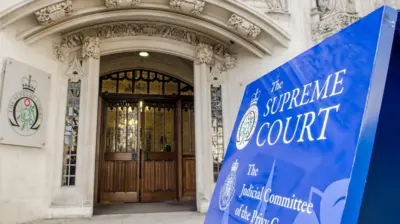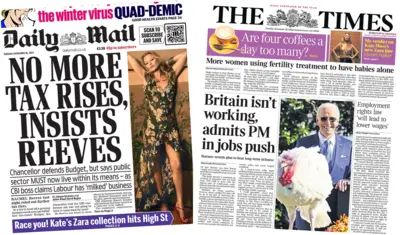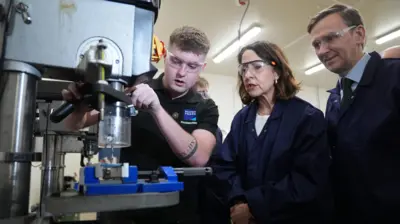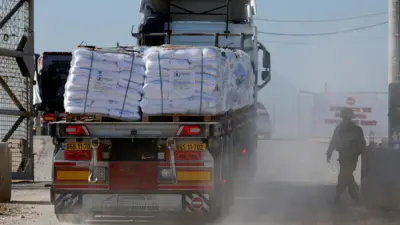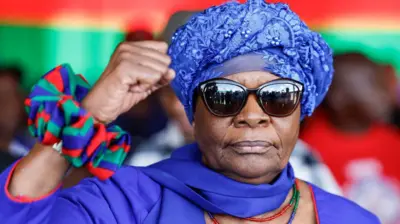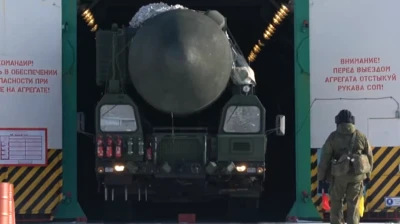We've updated our Privacy and Cookies Policy
We've made some important changes to our Privacy and Cookies Policy and we want you to know what this means for you and your data.
British Irish Chamber of Commerce proposes new customs union with EU
Image source, Getty Images
- Author, John Campbell
- Role, ґуПуґ«ГЅ News NI Economics & Business Editor
The British Irish Chamber of Commerce has proposed that the UK should form a new customs union with the EU after Brexit.
Brexit means the UK will leave the EU's customs union and it so far unclear what the new arrangement will be.
The group's plan focuses on an enhanced version of the existing customs union between the EU and Turkey.
It said this model would "best ensure that there would be no need for a hard border on the island of Ireland".
However, it would mean the UK would not be able to sign its own trade deals.
The business group said that having an improved version of the Turkey arrangement could make the "compromise" on trade deals "more palatable to businesses and the electorate".
Decision-makers
Turkey's customs union gives it tariff-free access to the EU for industrial goods.
However, that deal does not cover agriculture, apart from processed products.
It is also a deal in which Turkey has little power to shape the rules. It must apply the EU's common external tariff, but is not on the decision-making bodies that formulate tariffs.
It must also open its markets to countries with which the EU strikes a trade deal - but those countries are not obliged to open their markets to Turkey in return.
The business group proposes a deal between the UK and EU would cover the trade of all goods, including agricultural produce.
The UK would also have an input (but no veto) into future trade deals and automatically get access to markets where trade deals are agreed under the same conditions as those for the EU.
The group also proposes a high degree of regulatory alignment or equivalence between the UK and the EU.
The UK has already suggested such an agreement on agri-food measures but the group said this could be extended to cover all goods traded between the UK and the EU.
Top Stories
More to explore
Most read
Content is not available
